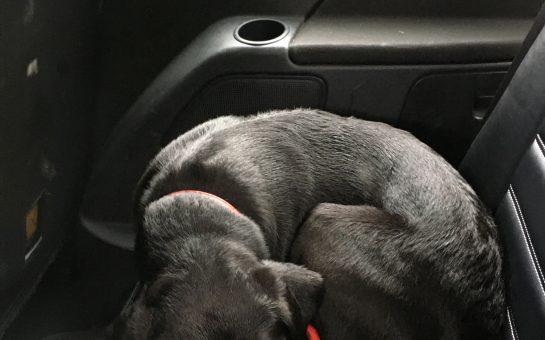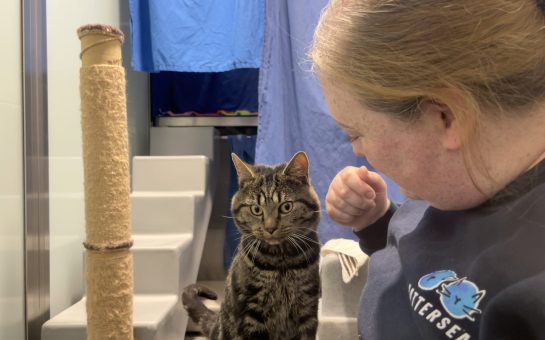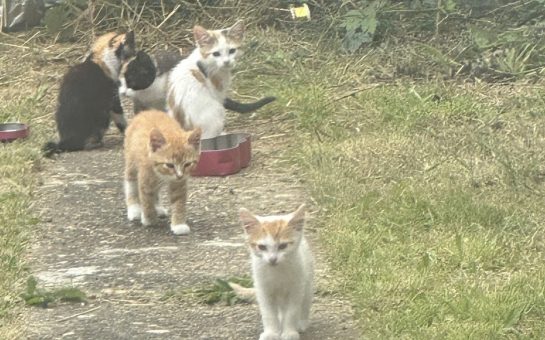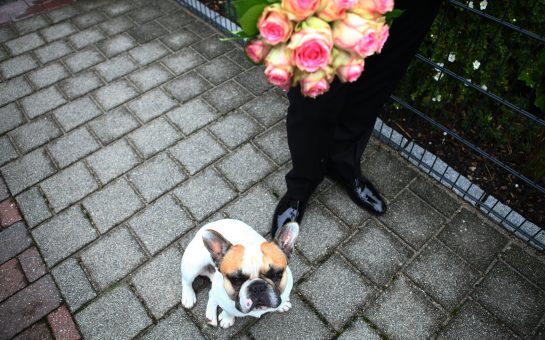May 10 2020, 07.35
Follow @SW_Londoner
They have been faithfully by our side for thousands of years and 9.9 million live in our homes.
Year-on-year figures for March 2020 show that dog adoptions increased by 25%, with twice as many cats and dogs from Battersea Dogs Home being rehomed compared to a similar period last year.
As columnists cooped up with their families praise their soothing presence and the public rush to find pets for lockdown companionship, a burning question needs answering: how is lockdown affecting your pet?
“Pets are a great sponge for picking up on your anxieties and stress,” said Pat White, an ABTC registered accredited animal behaviourist.
“Most dogs do not cope with instant change very easily and with our body language, we are transmitting our own semi-angst to our dogs.
“Dogs aren’t thinkers the way we are, but they are hugely reactive to what we are feeling. It only takes you raising your voice once for them to go, ‘Uh – this could mean bad news for me… I’m just going to get away from you’, and that just erodes a relationship.”
It’s times like these I wish I was a cat, our cat just said to me I’m just going out, I’ll leave the radio on to keep you company, yeah thanks very much! pic.twitter.com/jiB550XvuD
— Danny Mendoza (@DpjmendozaDanny) April 5, 2020
Dogs need a sense of routine and to be kept mentally and physically stimulated.
While this might be easier to do with older dogs, it poses significant challenges for dogs adapting to a new environment or puppies at important stages of their socialisation development.
Vets and animal behaviourists are combating this with social media and video conferencing – videos of noises such as fireworks are shown to puppies to try to acclimatise them.
“This is a terrible time to be rescuing a dog in my view,” Ms White said. “It’s fulfilling a human need but it’s not looking at what the dog needs.”
Clinical director for Village Vet London, Dr Francesca Scott, confirms the group are seeing an increasing number of problems.
“As time goes on, we’re getting more and more enquiries and having to be a source of advice for more and more situations that are arising,” she said.
“We assume our pets want us around and they do, but it’s a massive change for them, likely thinking – ‘why is everyone home, what’s happened to my walk patterns?’
“There’s much more stimulation which for some dogs is great, but for others is quite difficult, and will present problems later when we all go back to work.”
Joe Nutkins, a Kennel Club accredited dog trainer who suffers from Chronic Fatigue Syndrome, has encountered more visible and alarming behavioural changes in her two Norwich terriers Merlin and Ripley.
“Both of my dogs have picked up on my anxiety and altered their habits. They come to lie next to me while I’m confined to bed or sit with me and lean on me – they don’t usually do these things,” she said.
Continuing with our #StayAtHome boredom busters this #NationalPetMonth… this evening we’re ‘Digging Deep’🐶🐾!
— Dogs Trust 💛🐶 (@DogsTrust) April 22, 2020
If you’ve mastered our Figure of 8, Snoot or Tunnel Challenges – please do tag us in your videos, don’t pawget to include 👉 #MyDogIsForLife in your posts. pic.twitter.com/QddaziFqsU
More worryingly, one-year-old Ripley started to excessively self-groom and pull out tufts of her fur, while eight-year-old Merlin became clingy.
As a way of relieving her dogs’ stress, Joe has turned to zoopharmacognosy, or botanical self-selection – a process by which an animal uses natural plants or herbs to self-medicate on instinct, like dogs eating grass when their stomach is upset.
“A zoopharmacognosy practitioner will spend time with you and your dog offering a range of essential oils, hydrosols, macerated fats and herbs, all guided by the dog’s responses,” she said.
“When I saw Ripley was pulling at her fur and had gone off her food, I did a long session with her, offering everything I have one at a time and giving her time with each remedy.
“She selected things like German Chamomile and Elderflower hydrosols, and Vetiver essential oil which I wasn’t expecting.
“I half-expected her to select things to help with allergies, but instead she was selecting scents to help with anxiety,” explained Joe.
While the ramifications of the lockdown on human health and wellbeing will unfold over the coming months, if not years, it is clear that the same could happen with our pets.
Space and routine are important for dogs and cats as the calm ‘me time’ protects their stress levels – but as almost one in two UK households have a pet, how are the others faring?
Dr Scott explains that the same rules apply for house rabbits as for dogs, that reptiles won’t realise what’s going on but that birds will be having the time of their lives.
“They are used to a degree of lockdown anyway. This will probably play out quite happily for them,” she said.
“African Grey parrots have intelligence levels close to a five-year-old’s, so it will probably be a situation where you need to home-school them!”
Headline image by Joe Nutkins




